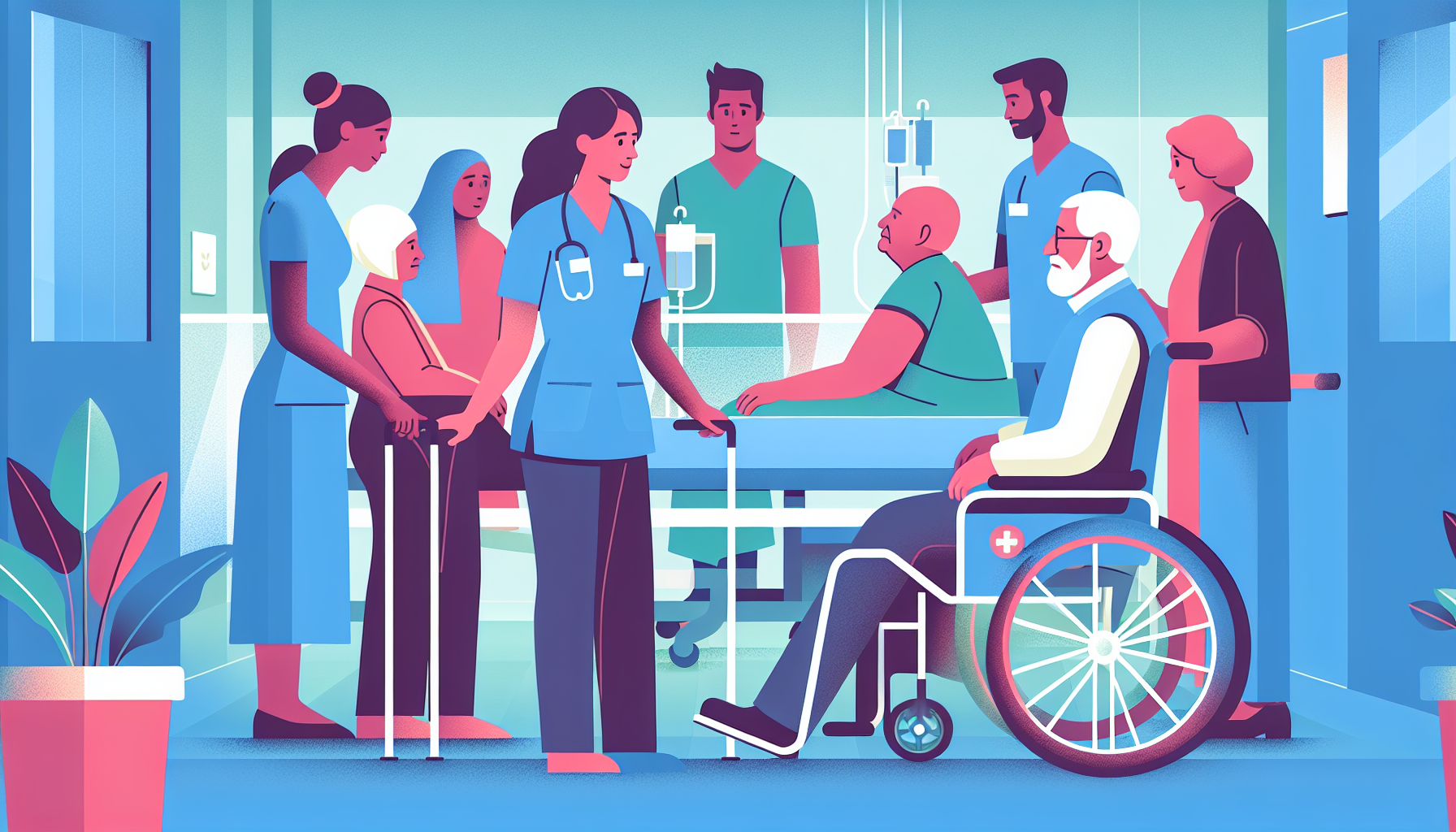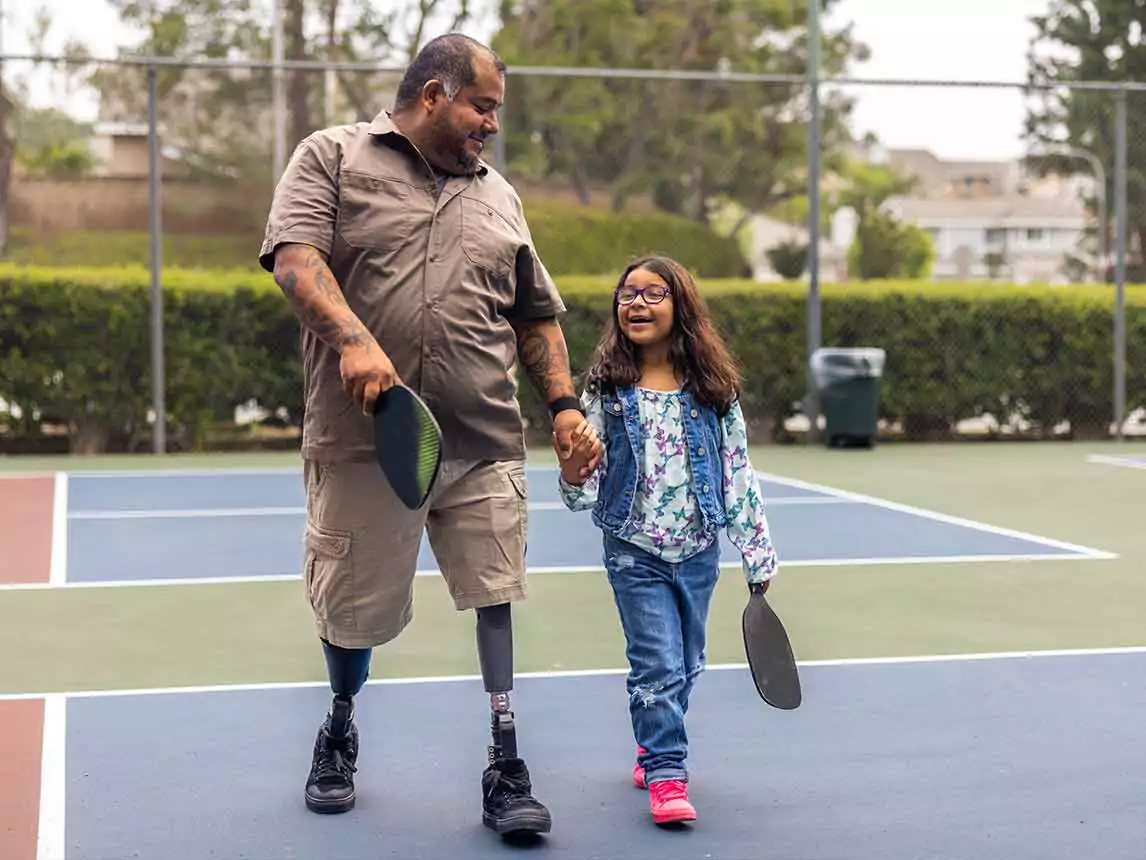Definition
Intermediate Care refers to a level of medical assistance provided to veterans that falls between complete independence and intensive skilled nursing care. It typically involves daily personal care and assistance with activities of daily living, such as bathing, dressing, and mobility, alongside medical monitoring and supervision. This type of care is offered to those who may not require constant medical attention but still need support in maintaining their daily lifestyle and well-being.
Key Takeaways
- Intermediate Care refers to a level of care provided to veterans who do not require intensive hospitalization but still need assistance with daily activities and medical monitoring.
- Services offered under Intermediate Care typically include nursing, rehabilitation, and assistance with personal care tasks, with the goal of improving the veteran’s independence and overall well-being.
- Veterans may be eligible for Intermediate Care benefits provided by the VA if they meet certain criteria, such as having a service-connected disability or limited financial resources.
Importance
Intermediate Care is an important term within VA benefits as it pertains to a specific level of medical care provided to veterans with moderate health needs.
This level of care is designed to bridge the gap between basic primary care and specialized services or long-term care.
By offering intermediate care, the Department of Veterans Affairs (VA) is able to support veterans who require more assistance than provided by routine outpatient services, but do not need the level of care offered in specialized facilities or nursing homes.
This ensures that all veterans receive the proper care and treatment they need based on their individual health status on their path to recovery or maintaining a good quality of life.
Explanation
The purpose of Intermediate Care in the context of VA benefits is to provide eligible veterans with a level of care that sits between the intensive services found in nursing homes and the more basic care provided in assisted living facilities or at home with home health care assistance. This type of care is designed specifically to cater to the needs of veterans who may not require constant supervision or round-the-clock care, but still need help with their daily living activities and some clinical assistance.
Intermediate Care caters to these individuals by offering them a more balanced approach that emphasizes both independence and support, allowing them to maintain a sense of dignity while ensuring their needs are met in a comprehensive and efficient manner. Intermediate Care is utilized for a variety of purposes, including but not limited to recovering from a surgery or illness, managing chronic conditions, or regaining strength and independence following a long hospital stay.
The program aims to address the unique needs of veterans, acknowledging their service and offering them a specialized healthcare option that targets their specific requirements. By providing veterans with tailored, intermediate-level care, this program can play a pivotal role in helping them transition into new living situations, manage their health, and build the skills and habits necessary for a secure and fulfilling life.
The VA benefits system supports Intermediate Care to ensure that veterans receive appropriate levels of care and service that recognize and honor their contributions to the country.
Examples of Intermediate Care
Intermediate Care in the context of VA Benefits refers to the level of care provided by the Department of Veterans Affairs (VA) for eligible veterans requiring medical or rehabilitation services but not continuous nursing care. Here are three real-world examples of Intermediate Care services provided by the VA:
Community Living Centers (CLCs): These centers are designed to provide short-term rehabilitative care or long-term care for veterans who require various levels of medical care, including intermediate care. Some services offered at CLCs include physical and occupational therapy, respite care, and hospice care. Veterans recovering from surgery or dealing with chronic conditions like diabetes, dementia, or heart disease may receive intermediate care at CLCs.
Adult Day Health Care (ADHC) Program: This program provides eligible veterans with therapeutic, social, and health services during daytime hours in a supportive group environment. This intermediate care service is generally aimed at promoting veterans’ independence and enhancing their overall quality of life. Veterans who require assistance with daily activities or have limited mobility may benefit from ADHC, receiving support in areas such as medication management, personal care, and social interaction.
Home-Based Primary Care (HBPC) Program: For veterans who have difficulty accessing outpatient care due to mobility issues or living in remote locations, the HBPC program offers intermediate care by providing comprehensive primary care services in their homes. This program entails a multidisciplinary team of medical professionals working together to meet the unique healthcare needs of veterans, offering services such as medical assessments, medication management, and mental health care.
FAQ – Intermediate Care VA Benefits
What is Intermediate Care in the context of VA benefits?
Intermediate Care refers to a level of medical care provided to Veterans that lies between acute care and long-term care. It is often needed for those who require some form of medical supervision, assistance, or rehabilitation but do not need the intensity of acute care.
Who is eligible for Intermediate Care VA benefits?
Veterans who are enrolled in the Department of Veterans Affairs (VA) health care system and meet certain service-connected disability requirements or other eligibility factors may qualify for Intermediate Care benefits.
What services are provided under Intermediate Care?
Intermediate Care can include skilled nursing services, rehabilitative therapies (such as physical, occupational, and speech therapy), medical social services, and assistance with activities of daily living (ADLs). The specific services provided may vary depending on the needs of the Veteran.
How does a Veteran apply for Intermediate Care benefits?
Veterans should first speak with their primary care provider or a VA social worker to discuss their specific needs and eligibility. If the provider agrees that Intermediate Care is appropriate, they will help the Veteran navigate the application process and coordinate care.
Are there any costs associated with Intermediate Care?
Costs for Intermediate Care services are determined on a case-by-case basis and may depend on factors such as the Veteran’s priority group, service-connected disability status, and income level. Some Veterans may qualify for free or reduced-cost care, while others may have copayments.
Where can a Veteran receive Intermediate Care services?
Intermediate Care may be provided in various settings, such as VA medical centers, VA community living centers, contracted community nursing homes, or through VA home-based primary care programs, depending on the needs and preferences of the Veteran.
Related VA Benefit Terms
“`html
- Subacute Rehabilitation
- Extended Care Services
- Transitional Care Unit
- Skilled Nursing Care
- Occupational Therapy
“`
Sources for More Information
- U.S. Department of Veterans Affairs
- Veterans Affairs Benefits and Services
- Veterans Benefits Administration
- Nolo
 Benefits.com Advisors
Benefits.com Advisors
With expertise spanning local, state, and federal benefit programs, our team is dedicated to guiding individuals towards the perfect program tailored to their unique circumstances.
Rise to the top with Peak Benefits!
Join our Peak Benefits Newsletter for the latest news, resources, and offers on all things government benefits.





















